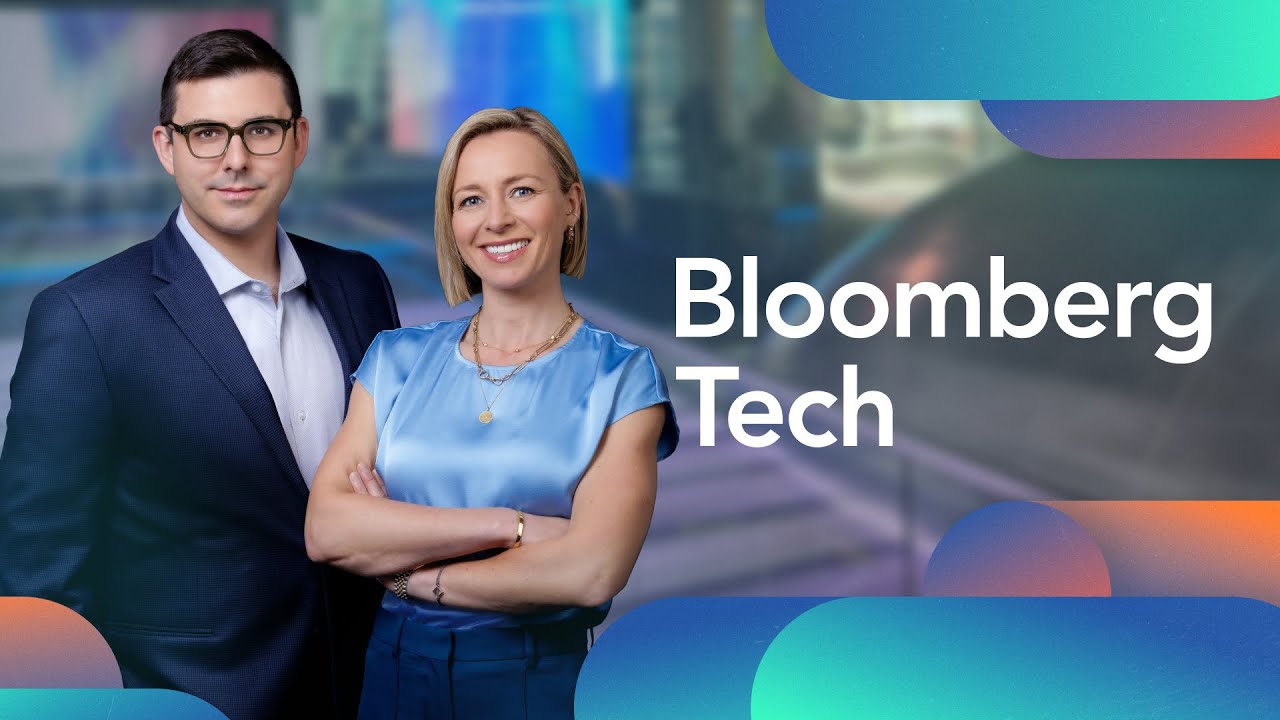The Bloomberg Tech segment highlights the White House’s AI Action Plan focused on boosting U.S. AI innovation, exporting American AI technology globally, fostering open-source ecosystems, and addressing ethical AI and workforce development, while also discussing industry challenges and company earnings from Tesla, Alphabet, and others. It emphasizes strategic efforts to onshore semiconductor manufacturing, strengthen public-private partnerships, and maintain U.S. leadership amid global competition, particularly with China.
The Bloomberg Tech segment opens with a focus on President Trump’s recent executive orders aimed at boosting AI development in the U.S. The administration’s AI Action Plan was enthusiastically received by industry leaders, signaling a shift from previous regulatory approaches to a more supportive stance on AI innovation. A key highlight was the President’s praise for NVIDIA and its CEO Jensen Huang, though he also mentioned having considered breaking up NVIDIA due to its dominance, a move ultimately dissuaded by advisors emphasizing the company’s critical role in AI chip development. The plan emphasizes exporting American AI technology globally, aiming to establish the U.S. as the preferred ecosystem for AI hardware, software, and cloud services.
The discussion then shifts to the challenges and opportunities within the AI industry, including the importance of open-source models. White House officials and AI experts highlighted the administration’s commitment to fostering an open-source ecosystem, which they see as vital for innovation and maintaining U.S. leadership in AI. They also addressed concerns about bias in AI models and the need for non-biased, ethical AI systems, especially in government procurement. The plan also focuses on workforce development, emphasizing reskilling and training to prepare Americans for AI-related jobs, while acknowledging the ongoing importance of attracting global talent to sustain the industry’s growth.
Tesla’s recent earnings call and outlook were a major topic, with CEO Elon Musk warning of several rough quarters ahead amid a transitional phase for the company. Musk’s comments about a new, more affordable vehicle model sparked speculation but lacked clarity, raising questions about its potential impact on Tesla’s sales and whether it might cannibalize existing models like the Model Y. Analysts expressed cautious optimism about Tesla’s long-term prospects due to its technological innovations, particularly in AI and autonomous driving, but noted short-term challenges remain significant.
Alphabet’s earnings were also analyzed, revealing strong AI-driven growth, particularly in search and cloud services, though the company faces pressure to increase capital spending to keep pace with competitors like OpenAI. Experts noted that while Alphabet is benefiting from AI investments, supply constraints and demand uncertainties persist. Other tech companies like ServiceNow and IBM were discussed, with ServiceNow highlighting AI’s role in automating routine tasks and improving efficiency, and IBM focusing on federal government opportunities and modernization efforts.
Finally, semiconductor industry leaders, including AMD’s CEO, discussed the strategic importance of onshoring chip manufacturing in the U.S. despite higher costs, emphasizing supply chain resilience learned from the pandemic. The administration’s AI Action Plan is seen as actionable and supportive of public-private partnerships to advance AI infrastructure and export policies. White House advisors reiterated the goal of making American AI technology the global standard, balancing open-source innovation with competitive export controls, particularly in the context of U.S.-China tech rivalry. The segment closes with anticipation of Intel’s upcoming earnings, highlighting the company’s ongoing turnaround efforts amid a challenging market environment.
